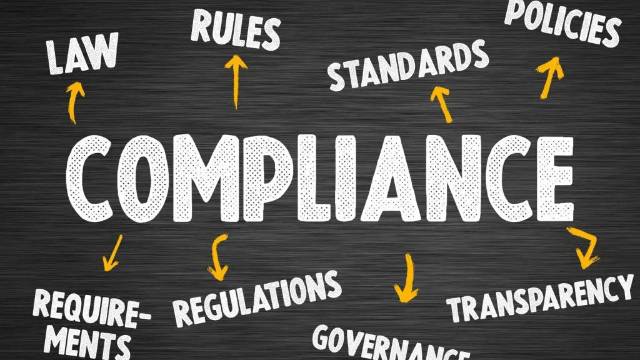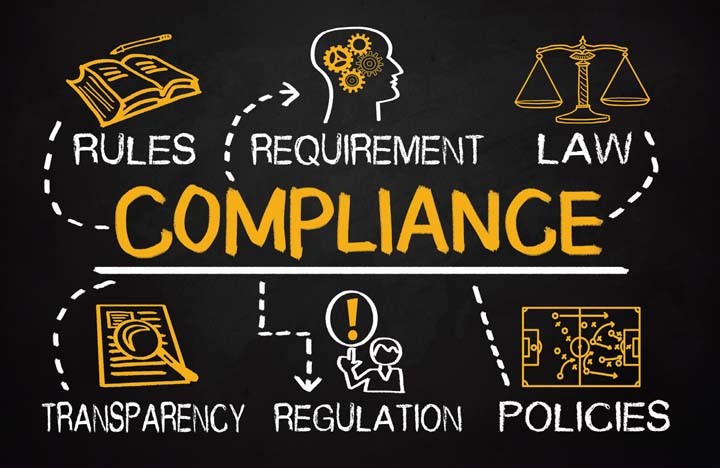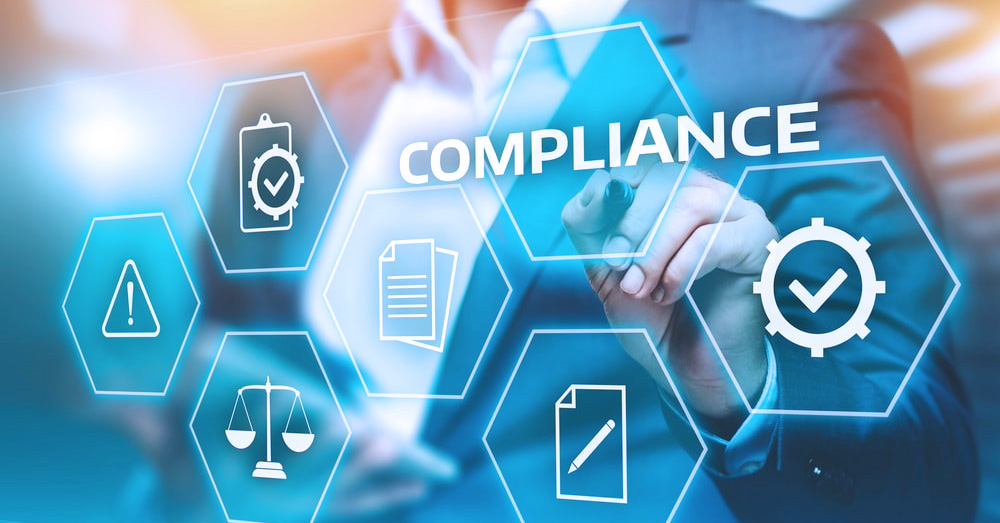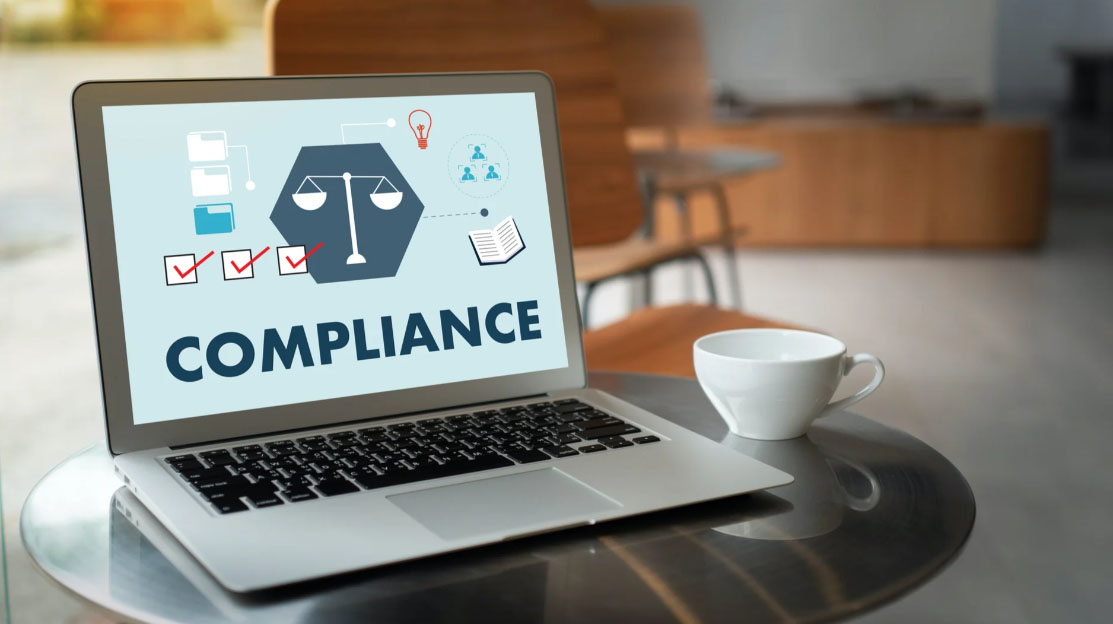Compliância refers to following rules and regulations that govern various industries. Its importance lies in creating trust between businesses, customers, and regulatory bodies. By adhering to ethical standards and legal requirements, organizations build credibility and contribute to long-term sustainability.
In this article, we will unravel the significance of Compliância, understand its central role, and explore how it silently safeguards businesses from the disaster. You’ll also explore why Compliân-cia is not just a buzzword but the unsung hero propelling businesses towards success. Let’s get started but let me first explain in detail what really Compliância is:
What Is Compliância?
Compliância is all about playing by the rules, whether you’re an individual or part of an organization. It means having clear structures, regulations, and guidelines in place for businesses.
Here are some key areas:
In any organization, how things are run, or governance involves setting up a structure where everyone knows their role and responsibilities. It includes having clear rules and procedures to guide everyone’s actions.
Dealing with risks, known as risk management, is about identifying what could go wrong, how bad it could be, and finding ways to prevent or lessen the impact of those problems.
Following the law, or regulatory Compliân-cia, is crucial as every industry has rules businesses must adhere to to avoid trouble.
Ethics and integrity go beyond just following the law; it’s about creating a culture where honesty and doing what’s right are encouraged.
Lastly, information management is about handling business data properly, protecting sensitive information, and keeping things confidential.
For individuals, it’s about understanding and sticking to the rules – whether it’s the company’s code of conduct, Compliân-cia policies, or the law.
If you don’t follow the rules, there could be consequences, from a talking-to at work to legal trouble. So, knowing what’s expected and playing by the rules is essential.
Key Aspects of Compliância
The following are the key aspects of an effective Compliân-cia program:
1. Understanding Rules
Compliância involves knowing and following the rules set by laws and regulations.
2. Policies and Procedures
Companies must create and enforce clear policies and procedures to ensure Compliância.
3. Ethical Behavior
Upholding ethical standards is crucial; behaving in a morally correct way is part of Compliân-cia.
4. Documentation
Keeping detailed records is critical; it helps prove adherence to regulations if needed.
5. Training and Awareness
Employees must be trained and aware of Compliân-cia requirements to avoid unintentional violations.
6. Risk Management
Identifying and managing risks is essential; companies must assess potential Compliância pitfalls.
7. Regular Audits
Regular internal and external audits ensure ongoing Compliân-cia and highlight areas for improvement.
8. Response to Non-Compliância
Swift action is necessary if non-Compliância is identified; addressing issues promptly is crucial.
9. Continuous Improvement
Adapting to evolving regulations and improving Compliân-cia processes over time is vital.
10. Communication
Open communication channels help convey Compliân-cia expectations and address concerns effectively.
Compliância involves understanding and adhering to rules through policies, ethical behavior, documentation, training, risk management, audits, prompt response to non-Compliân-cia, continuous improvement, and effective communication.
Key Principles of Compliância
Compliância, in simple terms, refers to following rules and regulations. Fundamental principles guide Compliân-cia, ensuring organizations act ethically and legally.
- Integrity: Always do what is right, even when no one is watching. Integrity means being honest and fair in all actions.
- Transparency: Be open and transparent about your actions. Transparency helps build trust and allows others to understand how decisions are made.
- Accountability: Take responsibility for your actions. If mistakes happen, admit them and work to fix them. Accountability is crucial for a trustworthy environment.
- Consistency: Apply rules consistently. Treating everyone somewhat creates a sense of justice and prevents favoritism.
- Adaptability: Laws and regulations can change. Stay informed and be ready to adjust to new requirements to ensure ongoing Compliân-cia.
- Documentation: Keep records of actions and decisions. Proper documentation helps demonstrate Compliância and serves as a reference for future needs.
- Continuous Improvement: Regularly assess and enhance Compliância processes. Learn from experiences and strive to do better over time.
By embracing these principles, organizations can build a strong foundation for Compliân-cia, fostering a culture of honesty, responsibility, and trust.
Importance Of Compliância
Compliância is crucial for any organization that wants to do the right thing and avoid severe consequences for breaking the rules.
When companies make Compliân-cia a big part of their plans and how they work, it helps them build trust, handle risks well, and support practices that are good for the long run.
Implementation Of An Effective Compliân-cia Program
An effective Compliân-cia program is crucial for any organization to operate ethically and within legal boundaries.
To start, establish clear policies and procedures that everyone can easily understand. These guidelines should cover critical areas such as anti-corruption, data privacy, and ethical business practices.
Then, promote these policies across the entire company. Employees who receive regular training are better able to understand the significance of Compliân-cia and the particular guidelines they must adhere to.
Establish open lines of communication so that staff members are at ease reporting issues or infractions.
Establish routine monitoring systems and audits to guarantee continued Compliância. This facilitates the early detection of possible problems and enables prompt remedial action.
Encourage a Compliância-oriented culture by praising and rewarding staff members who regularly follow the rules.
Lastly, stay informed about changes in laws and regulations relevant to your industry. Update your Compliân-cia program accordingly to address new challenges and risks.
Integrating these steps into your organization’s daily operations allows you to build and maintain an effective Compliância program that promotes ethical behavior and safeguards the company’s reputation.
Importance Of Compliân-cia In Business
Compliância in business is crucial as it ensures that companies adhere to laws and regulations, promoting ethical practices and transparency.
In the implementation of Compliância standards, trust is created with stakeholders especially customers, investors and employees. It protects from legal issues, fines and loss of reputation that occurs from non-Compliân-cia.
Additionally, Compliân-cia creates a level playing field for everybody by promoting a just and competitive corporate environment. Businesses that place a high priority on Compliân-cia are dedicated to sustainability, ethical behavior, and social responsibility.
Maintaining Compliância protects the company and advances its long-term prosperity by building a solid reputation and preserving confidence in the marketplace.
Even though following the rules takes time and money, it’s worth it. It keeps companies out of trouble, ensures everyone is safe, builds trust, and helps companies get better at what they do. That’s why businesses and their leaders should always follow the rules.
Measuring Compliância Success
Following are the points by which we can measure Compliân-cia success:
- Clear Guidelines: Ensure that everyone understands the rules and expectations clearly. Use simple language and provide examples to avoid confusion.
- Training Effectiveness: Regularly assess how well employees grasp the Compliância training. Use quizzes or practical scenarios to gauge understanding.
- Monitoring Systems: Implement systems to track and monitor adherence to Compliância rules. This can include software, regular check-ins, or automated alerts for any deviations.
- Incident Reporting: Establish a straightforward system for reporting Compliância concerns or incidents. Encourage open communication without fear of retaliation.
- Audits and Reviews: Conduct periodic audits to assess Compliân-cia across different departments. Regular reviews help identify areas for improvement.
- Feedback Mechanism: Create a feedback loop where employees can share their thoughts on the effectiveness of Compliân-cia measures. This can help in refining policies.
- Documentation: Ensure that all Compliância-related activities are well-documented. This includes keeping records of training sessions, incidents, and audits.
- Continuous Improvement: Regularly review and update Compliân-cia policies to adapt to changing regulations or organizational needs. Emphasize a culture of constant improvement.
By focusing on these points, organizations can simplify the process of measuring Compliân-cia success and foster a culture of transparency and adherence.
Challenges Faced By Compliância
Compliância poses various challenges for businesses, often requiring adherence to many rules and regulations.
1. Complexity of legal jargon
One common issue is the complexity of legal jargon, making it difficult for employees to understand and follow guidelines.
This challenge is compounded by the ever-changing nature of Compliância requirements, demanding constant updates and employee training.
2. Diversity of regulations
Another hurdle is the diversity of regulations across different industries and regions, confusing organizations operating in multiple jurisdictions.
Ensuring consistent Compliân-cia becomes daunting, especially for large enterprises with global operations.
3. Resource constraints
Moreover, resource constraints present a significant challenge. Small and medium-sized businesses may need more human resources and financial means to establish robust Compliância frameworks. This can result in non-Compliância due to insufficient monitoring and enforcement mechanisms.
4. Rapid Evolution of Technology
Additionally, the rapid evolution of technology introduces cybersecurity and data protection challenges. Adapting to new digital threats and safeguarding sensitive information is an ongoing struggle for businesses striving to stay compliant in the digital age.
These challenges highlight the need for simplified, accessible Compliância frameworks and ongoing efforts to streamline and standardize regulations to facilitate better understanding and implementation.
Leveraging Technology for Compliân-cia
Adherence to rules and regulations is ensured by using technology for Compliância. Businesses can lower the risk of infractions by streamlining procedures, monitoring activity, and automating inspections with the use of cutting-edge technologies.
Transparency and accountability are increased by the ease with which data analysis, reporting, and monitoring can be done with digital solutions. This tech-driven strategy helps to stay current with changing Compliân-cia standards while simultaneously increasing productivity.
Embracing technology ensures a proactive and responsive Compliância framework, safeguarding against potential legal issues and fostering a culture of responsibility within the organization.
Future Of Compliância
As technology advances, Compliância has a bright future. Businesses will probably use cutting-edge technologies to automate and accelerate regulatory procedures, cutting down on mistakes and ensuring legal Compliân-cia.
In order to improve risk management, artificial intelligence (AI) will be essential for tracking and analyzing massive volumes of data. Blockchain has the potential to completely change Compliância records’ security and openness.
Employee training will focus on digital literacy and ethical behavior, aligning with the growing importance of cybersecurity.
Overall, the future of Compliân-cia embraces innovation, making regulatory adherence more efficient and effective by integrating cutting-edge technologies.
Conclusion
Compliância emerges as the silent champion in the realm of business success and prevention of disasters. Like an unsung hero, it protects businesses from potential crisis, ensuring they operate within legal and ethical boundaries.
Businesses ensure their survival and gain the trust of stakeholders by adhering to these laws and regulations. Companies use Compliân-cia as a compass to navigate success and avoid the dangers of non-Compliância.
Recognizing Compliância’s pivotal position in corporate operations elevates it beyond all else, turning it from a necessary but silent need into the unsung hero that propels long-term success.
FAQs
What does Compliância do?
Compliância is about following rules. To run your business legally, you must follow industry standards, laws, regulations, and ethical guidelines that apply to your business. This ensures smooth and lawful operations.
What are ethical standards?
Good behavior guidelines involve being truthful, caring, and loyal. They also cover rights such as life, safety, and privacy.
What is the meaning of in Compliân-cia?
Compliân-cia means following rules or orders. Everyone is expected to obey the law.
What is the role of a Compliância officer?
A Compliância Officer fulfills several functions: Monitors all operational processes and procedures using a Compliân-cia management platform to ensure the company complies with all legal regulations and ethical standards. Manages information flow by researching, recording, and analyzing data and information.






